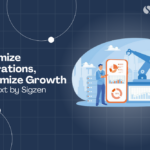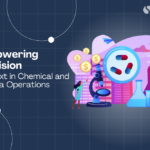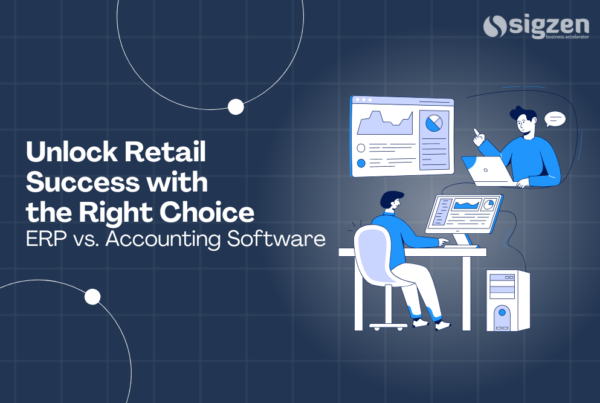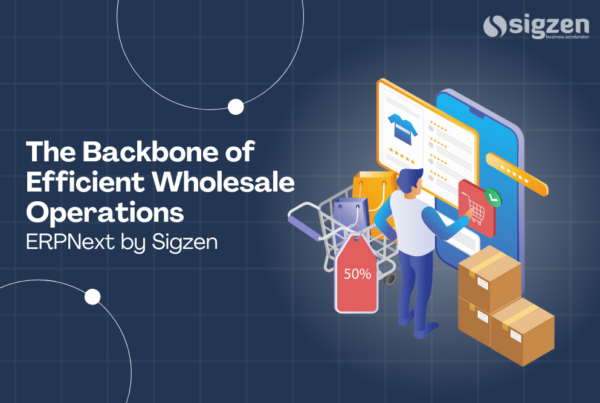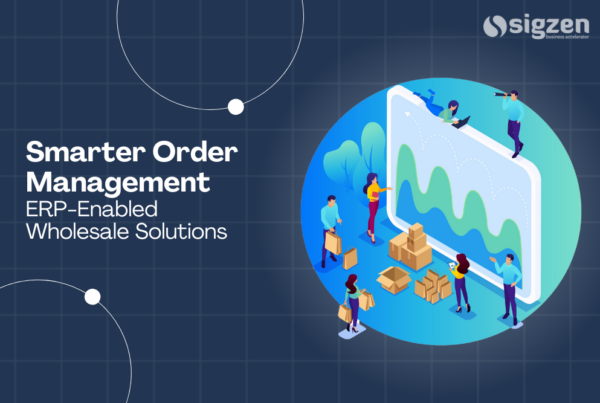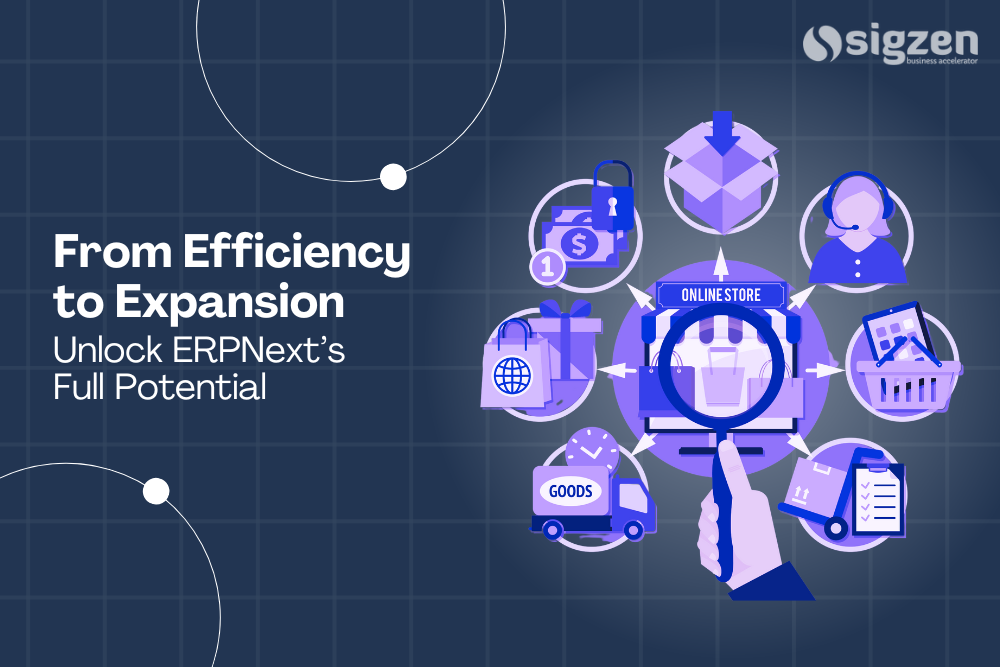
Introduction: Enhancing Retail and Wholesale Supply Chains with ERPNext
Managing supply chains in the retail and wholesale industry is a complex task, involving everything from procurement and inventory management to distribution and customer fulfillment. As businesses grow and their operations become more intricate, keeping track of these processes using outdated systems or manual methods becomes inefficient and prone to errors.
This is where ERP for Retail and Wholesale comes into play. By integrating all supply chain management processes into a single platform, ERPNext empowers businesses to streamline their operations, improve decision-making, and ultimately boost their bottom line. In this article, we will explore how ERPNext’s supply chain management capabilities can revolutionize operations for businesses in the retail and wholesale sector. From procurement to distribution, ERPNext ensures seamless management of your supply chain, helping you improve efficiency and cut costs.
How ERPNext Improves Supply Chain Management in Retail and Wholesale
Supply chain management is at the heart of retail and wholesale businesses. Managing everything from inventory levels to order processing and logistics requires a system that can provide real-time data and automate complex workflows. ERPNext, as part of its suite of solutions for retail and wholesale industries, provides an integrated supply chain management ERP system that helps businesses manage their operations more efficiently and cost-effectively.
1. Centralized Inventory Management
Effective retail inventory software is essential for ensuring businesses have the right products at the right time. ERPNext offers a centralized inventory management system that enables businesses to:
- Track inventory in real-time across multiple locations, providing accurate visibility of stock levels and preventing stockouts or overstocking.
- Automate stock replenishment by setting up reorder levels based on historical sales data, ensuring that stock is always available for customer demand.
- Manage multiple warehouses with ease, tracking inventory movements between different locations to ensure efficiency in fulfillment.
By automating these processes, ERPNext helps businesses reduce the time spent on manual stock management, reduce the risk of human error, and improve inventory accuracy.
2. Efficient Procurement and Order Management
Managing the procurement process is another critical aspect of supply chain management process in the retail and wholesale industry. ERPNext helps businesses streamline procurement by:
- Automating purchase orders: ERPNext automatically generates purchase orders based on stock levels, demand forecasts, and vendor performance.
- Centralizing supplier management: Businesses can store and manage supplier information, track order histories, and monitor supplier performance to optimize procurement decisions.
- Ensuring seamless order processing: ERPNext integrates order management with inventory and financials, ensuring that orders are processed efficiently, from order placement to invoicing and shipping.
By automating procurement and order management, businesses can reduce lead times, optimize supplier relationships, and improve their cash flow.
3. Real-Time Data for Better Decision-Making
One of the biggest challenges in supply chain management is making timely, data-driven decisions. ERPNext helps solve this by offering real-time reporting and analytics:
- Production management insights: The system integrates production data with inventory and procurement, giving businesses full visibility into the entire supply chain. This integration helps identify bottlenecks, reduce waste, and improve production efficiency.
- Demand forecasting: By analyzing sales data and trends, ERPNext helps businesses forecast future demand and adjust procurement strategies accordingly. This improves the ability to meet customer needs without overstocking or understocking.
- Performance tracking: ERPNext tracks key performance indicators (KPIs) across the supply chain, allowing businesses to evaluate supplier performance, order fulfillment rates, and inventory turnover, leading to better decision-making.
With this level of real-time visibility, businesses can react quickly to changes in the market, minimize stockouts, and optimize their supply chain operations.
Key Features of ERPNext for Supply Chain Management in Retail and Wholesale
ERPNext offers a comprehensive suite of tools to help businesses manage their supply chains from procurement to distribution. Below are some key features that enhance supply chain management for retail and wholesale businesses:
1. Integrated Sales and Procurement
ERPNext provides seamless integration between sales and procurement processes, ensuring that orders are fulfilled quickly and efficiently:
- Sales orders linked to inventory: When a sales order is placed, ERPNext checks stock levels and creates purchase orders to replenish inventory if necessary.
- Automated vendor selection: The system can automatically select the best supplier based on factors such as cost, lead time, and past performance, helping businesses optimize their procurement decisions.
This integration ensures a smooth flow of goods from suppliers to customers, reducing lead times and improving overall efficiency.
2. Supply Chain Optimization with Production Management
Managing production is a key part of the retail and wholesale supply chain. ERPNext’s production management module helps businesses:
- Track production cycles: Monitor the progress of manufacturing or assembly processes in real-time, ensuring that products are ready for distribution on time.
- Optimize resource allocation: Allocate resources such as labor, machinery, and raw materials more effectively, reducing production delays and ensuring efficient use of resources.
- Monitor quality control: Integrate quality control checks at each stage of the production process, ensuring that only products that meet the highest standards are shipped to customers.
By integrating production management with the broader supply chain, ERPNext enables businesses to better manage lead times and reduce production costs.
3. Advanced Reporting and Analytics
Supply chain management ERP systems like ERPNext offer advanced reporting and analytics features that help businesses gain valuable insights into their operations:
- Inventory turnover reports: Track how quickly products are sold and replenished, helping businesses optimize their inventory levels and reduce holding costs.
- Supplier performance reports: Monitor key metrics such as on-time delivery, order accuracy, and cost efficiency, allowing businesses to identify and work with the best suppliers.
- Sales forecasts and demand planning: By analyzing historical sales data, ERPNext helps businesses predict future demand and adjust their procurement and production strategies accordingly.
These reports give businesses the insights they need to optimize their supply chain processes and make better strategic decisions.
Case Studies: How ERPNext Transformed Supply Chain Management for Retail and Wholesale Businesses
Case Study 1: Retailer Streamlining Procurement and Order Management
A retail business managing multiple product lines faced difficulties in keeping up with customer demand while also managing inventory levels. By implementing ERPNext, the company was able to:
- Automate purchase orders based on real-time inventory levels, ensuring they never ran out of stock.
- Streamline order management and reduce the time spent on manual data entry.
- Improve supplier relations by tracking vendor performance and ensuring timely deliveries.
As a result, the business experienced a 20% reduction in procurement lead times and 15% lower inventory holding costs, improving overall profitability and customer satisfaction.
Case Study 2: Wholesale Distributor Improving Distribution Efficiency
A wholesale distributor dealing with a large number of products across multiple regions was struggling with supply chain visibility. After adopting ERPNext, they achieved:
- Better inventory management across warehouses, reducing stockouts and overstocking.
- Improved order fulfillment by optimizing warehouse picking and packing processes.
- Faster and more accurate demand forecasting, reducing lead times and meeting customer needs more effectively.
This integration led to 30% faster order processing times and a 25% reduction in logistics costs, making the business more efficient and responsive to market changes.
How to Choose the Right ERP for Your Retail and Wholesale Business
Choosing the right ERP system for your retail or wholesale business can be challenging. Here are some key factors to consider when selecting an ERP for Retail and Wholesale:
- Industry-Specific Features: Ensure the ERP system includes specialized modules for supply chain management, inventory, and procurement tailored to the needs of retail and wholesale businesses.
- Scalability: As your business grows, your ERP system should be able to scale with it, handling increasing data, transactions, and product lines.
- Integration with Other Systems: Your ERP system should integrate smoothly with other tools you use, such as point-of-sale (POS) systems or e-commerce platforms, for seamless data flow across the business.
- User-Friendliness: Choose an ERP system with an intuitive interface that your team can easily adopt, minimizing training time and improving productivity.
Implementation Tips for ERP Solutions in Retail and Wholesale
Implementing an ERP system in the retail and wholesale sector requires careful planning. Here are a few tips for a smooth ERPNext implementation:
- Set Clear Goals: Identify the key areas you want to improve, such as inventory management, procurement, or order fulfillment, and ensure the ERP system meets these needs.
- Involve Key Stakeholders: Engage employees from key departments like procurement, sales, and warehousing to ensure the system aligns with the workflows of each department.
- Training and Support: Invest in training to ensure your team understands how to use the new system effectively.
- Continuous Monitoring: After implementation, monitor the system’s performance regularly to ensure it’s meeting your business needs and optimizing your supply chain.
Conclusion: Unlock Efficiency and Control with ERPNext
Effective supply chain management is critical to the success of retail and wholesale businesses. With ERPNext’s ERP for retail and wholesale, businesses can streamline procurement, optimize inventory management, and improve order fulfillment, ultimately driving growth and profitability. By offering real-time insights and automating key processes, ERPNext helps businesses stay competitive in an increasingly fast-paced marketplace.
